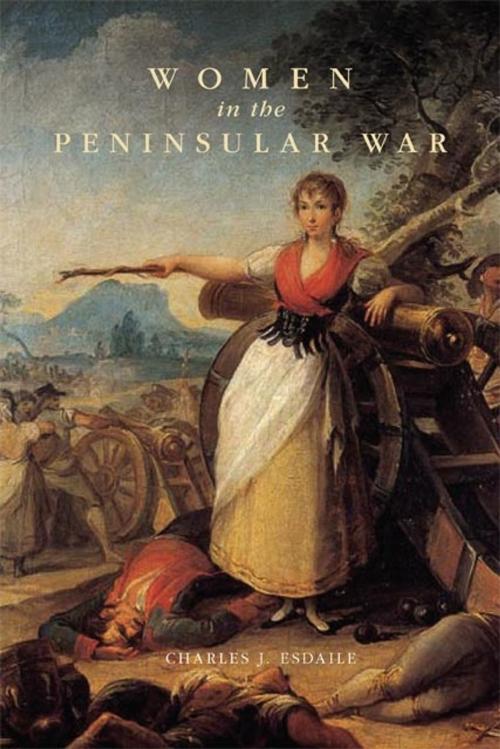Women in the Peninsular War
Nonfiction, History, Spain & Portugal, Social & Cultural Studies, Social Science, Gender Studies, Women&, Military| Author: | Charles J. Esdaile | ISBN: | 9780806147635 |
| Publisher: | University of Oklahoma Press | Publication: | August 7, 2014 |
| Imprint: | University of Oklahoma Press | Language: | English |
| Author: | Charles J. Esdaile |
| ISBN: | 9780806147635 |
| Publisher: | University of Oklahoma Press |
| Publication: | August 7, 2014 |
| Imprint: | University of Oklahoma Press |
| Language: | English |
In the iconography of the Peninsular War of 1808–14, women are well represented—both as heroines, such as Agustina Zaragosa Domenech, and as victims, whether of starvation or of French brutality. In history, however, with its focus on high politics and military operations, they are invisible—a situation that Charles J. Esdaile seeks to address.
In Women in the Peninsular War, Esdaile looks beyond the iconography. While a handful of Spanish and Portuguese women became Agustina-like heroines, a multitude became victims, and here both of these groups receive their due. But Esdaile reveals a much more complicated picture in which women are discovered to have experienced, responded to, and participated in the conflict in various ways. While some women fought or otherwise became involved in the struggle against the invaders, others turned collaborator, used the war as a means of effecting dramatic changes in their situation, or simply concentrated on staying alive. Along with Agustina Zaragoza Domenech, then, we meet French sympathizers, campfollowers, pamphleteers, cross-dressers, prostitutes, amorous party girls, and even a few protofeminists.
Esdaile examines many social spheres, ranging from the pampered daughters of the nobility, through the cloistered members of Spain’s many convents, to the tough and defiant denizens of the Madrid slums. And we meet not just the women to whom the war came but also the women who came to the war—the many thousands who accompanied the British and French armies to the Iberian peninsula. Thanks to his use of copious original source material, Esdaile rescues one and all from, as E. P. Thompson put it, “the enormous condescension of posterity.” And yet all these women remain firmly in their historical and cultural context, a context that Esdaile shows to have emerged from the Peninsular War hardly changed. Hence the subsequent loss of these women’s story, and the obscurity from which this book has at long last rescued them.
In the iconography of the Peninsular War of 1808–14, women are well represented—both as heroines, such as Agustina Zaragosa Domenech, and as victims, whether of starvation or of French brutality. In history, however, with its focus on high politics and military operations, they are invisible—a situation that Charles J. Esdaile seeks to address.
In Women in the Peninsular War, Esdaile looks beyond the iconography. While a handful of Spanish and Portuguese women became Agustina-like heroines, a multitude became victims, and here both of these groups receive their due. But Esdaile reveals a much more complicated picture in which women are discovered to have experienced, responded to, and participated in the conflict in various ways. While some women fought or otherwise became involved in the struggle against the invaders, others turned collaborator, used the war as a means of effecting dramatic changes in their situation, or simply concentrated on staying alive. Along with Agustina Zaragoza Domenech, then, we meet French sympathizers, campfollowers, pamphleteers, cross-dressers, prostitutes, amorous party girls, and even a few protofeminists.
Esdaile examines many social spheres, ranging from the pampered daughters of the nobility, through the cloistered members of Spain’s many convents, to the tough and defiant denizens of the Madrid slums. And we meet not just the women to whom the war came but also the women who came to the war—the many thousands who accompanied the British and French armies to the Iberian peninsula. Thanks to his use of copious original source material, Esdaile rescues one and all from, as E. P. Thompson put it, “the enormous condescension of posterity.” And yet all these women remain firmly in their historical and cultural context, a context that Esdaile shows to have emerged from the Peninsular War hardly changed. Hence the subsequent loss of these women’s story, and the obscurity from which this book has at long last rescued them.















